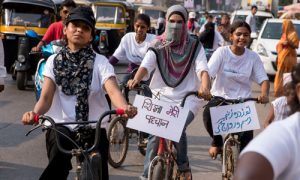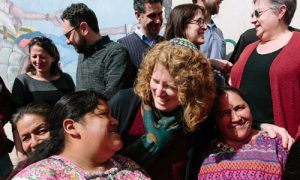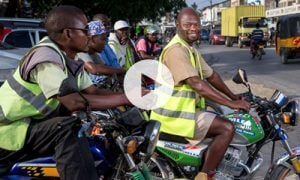Last week, I was joined by several AJWS partners and supporters as we explored the Dominican Republic together. I had been to the DR many years before, but like many people, I was there primarily on vacation to enjoy the beaches and have a good time. On this trip, I was in the historically rich city of Santo Domingo (a place infamously colonized by Christopher Columbus) for a very different purpose: meeting with our grantees, exploring the land and engaging in challenging discourse together about their future in their own country.
In any country so beautiful (and especially one known as a tourist destination) it can be easy to ignore some of the less palatable—and often unjust—elements that you encounter as a tourist. While the DR is safe, mostly democratic, and growing economically, it is hard to ignore the massive unresolved issue of mass denaturalization that nearly 200,000 Dominicans and Dominicans of Haitian descent have experienced. Through political maneuvering rooted in historical racism and inequality, generations of Dominican families with Haitian ancestry who built the country’s economy via the sugar cane industry now find themselves strangers in their own land.
Since being stripped of their citizenship by the DR in 2010, many communities of Dominicans lack the essential dignities that should be afforded to every human being: access to their birth certificates, education, healthcare, jobs, and overall quality of life. This is where you and AJWS come into the picture.
Your generosity over the years has enabled AJWS to incisively tackle the root causes of this travesty. We have illuminated the plight of these communities through various channels of advocacy and have empowered young women and men across the island to stand up for their inherent dignity as individuals Perhaps the most powerful visit for me was with our grantee partner Reconoci.do, an organization that has played an instrumental role in restoring rights to Dominicans stripped of their citizenship. Listening to the founder of this movement, Ana Maria Belique (pictured above), I found myself strongly believing that she could be the President of this country one day. I find inspiration in the tireless efforts of these heroes like Ana Maria, and I feel energized to know that AJWS, with your help, is finding leaders like her in 19 countries across the world. Despite the global rise of hate and intolerance I am deeply grateful that our AJWS community is making a difference.
That is why I’m excited to be able to share this collection of stories, videos, photos and news that highlight the impact we are making together. These are stories of hope and perseverance: a courageous group of women and girls in India who are tackling gender equality; an LGBTQI group in Kenya transforming homophobic taxi drivers into allies and protectors; and photos from the powerful experience of 15 rabbis who traveled with AJWS to Guatemala last month on a journey of solidarity, learning and activism.
I hope these stories make you proud. You’re a part of the change they describe, because your support makes it possible for our grantees to do their critical work to advance equality, reduce poverty and protect human rights by changing hearts, minds and laws. And since I know you care about breaking news related to our grantees, I’ve also included some key news and opinion pieces to help you stay up-to-date on the fight for human rights worldwide.
Thank you for your passion for this work and your ongoing commitment to building a better world.
Warmly,
Brad Sugar
Director, Midwest Region

Reimaging What Women and Girls Can Do in India
Meet Kausar: She helps teenage girls in Mumbai gain the confidence to stay in school and pursue careers. She has come a long way since her mother forced her to marry a man who treated her like a servant when she was just 15. Click through these powerful photos of Kausar’s work and learn how she found the strength to forge a new life on her own terms.
Rabbis Bear Witness to Human Rights Work in Guatemala

Fifteen rabbis. One powerful week in Guatemala. A shared passion for justice. Click through these photos to witness how our Global Justice Fellows were inspired by the human rights defenders they met on their journey to Central America with AJWS.

From Assailants to Allies: Kenyan LGBTQI Community Finds Support
In coastal Kenya, a group of motorcycle taxi drivers who used to attack and harass LGBTQI people in the streets have become some of the community’s greatest friends and allies. This 1-minute video chronicles how an innovative startup supported by AJWS is promoting tolerance and changing lives.
